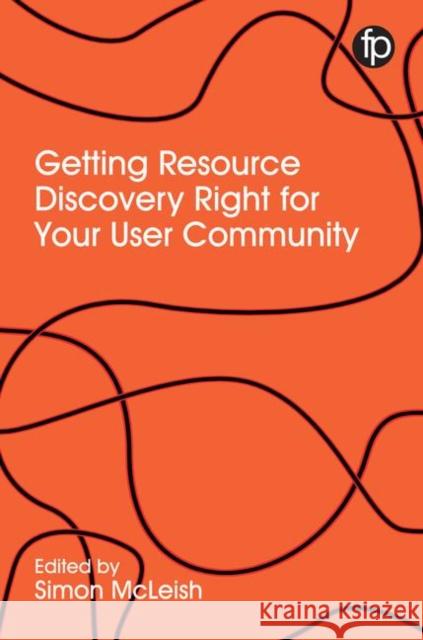Getting Resource Discovery Right for Your User Community » książka
topmenu
Getting Resource Discovery Right for Your User Community
ISBN-13: 9781783301386 / Miękka / 2020 / 256 str.
Discovery is central to academic activities at all levels, and is a major focus for libraries and museums. This book will help its readers learn how to adapt in a fast changing area to continue to serve their communities.
Getting Resource Discovery Right for your User Community contains a range of contributions analysing the ways in which libraries and museums (and others) are tackling the challenges facing them in discovery in the (post)-Google era. Chapters are written by experts, both global and local – describing specific areas of discovery and local implementations and ideas. The book will help with enhancing discovery both inbound – making locally held resources globally discoverable – and outbound – making global resources locally discoverable – in ways which are relevant to your user community.
Content covered includes:
- a survey of what resource discovery is today
- analysis of how users approach discovery
- using limited resources to help users find collections
- discussion of the special requirements of and solutions for archives and museums
- the role museum and library discovery plays in learning and teaching
- linked open data and discovery
- the future of discovery.
This book will be useful for subject librarians and others who give direct support to library users, digital library technicians, managers, staff with responsibility for managing electronic resources, metadata and discovery specialists, trainers and user education specialists. It will also be of use to curators and others who give direct support to researchers, managers of digitisation and cataloguing products, IT staff, trainers and user education specialists in archives and museums.
Discovery is central to academic activities at all levels, and is a major focus for libraries and museums. This book will help its readers learn how to adapt in a fast changing area to continue to serve their communities.
Getting Resource Discovery Right for your User Community contains a range of contributions analysing the ways in which libraries and museums (and others) are tackling the challenges facing them in discovery in the (post)-Google era. Chapters are written by experts, both global and local – describing specific areas of discovery and local implementations and ideas. The book will help with enhancing discovery both inbound – making locally held resources globally discoverable – and outbound – making global resources locally discoverable – in ways which are relevant to your user community.
Content covered includes:
- a survey of what resource discovery is today
- analysis of how users approach discovery
- using limited resources to help users find collections
- discussion of the special requirements of and solutions for archives and museums
- the role museum and library discovery plays in learning and teaching
- linked open data and discovery
- the future of discovery.
This book will be useful for subject librarians and others who give direct support to library users, digital library technicians, managers, staff with responsibility for managing electronic resources, metadata and discovery specialists, trainers and user education specialists. It will also be of use to curators and others who give direct support to researchers, managers of digitisation and cataloguing products, IT staff, trainers and user education specialists in archives and museums.











